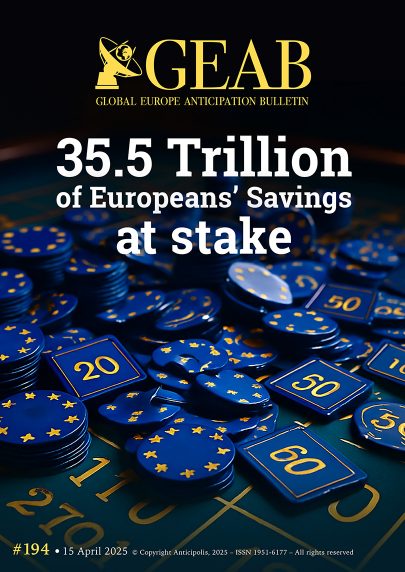GEAB 194
As in every stock market crisis, stocks will change hands. Insofar as the crisis is largely provoked, it is likely that state structures – starting with the United States – will take advantage of it to regain control of part of the economy. We propose a series of recommendations that take account of three predicates: fiscal uncertainty, the rise of state capitalism and the current geo-economic fragmentation.
State capitalism – Betting on sovereign champions
At a time when governments are strengthening their economic role by buying up or influencing key sectors (energy, telecoms, semiconductors, sovereign cloud, cybersecurity, data centres, 5G networks), certain companies deemed strategic may benefit from implicit or explicit support. Investing in these sectors, especially when they are temporarily undervalued in times of crisis, can offer good leverage to returns over the medium term. This type of asset can also benefit from greater protection against the vagaries of the market, as it is seen as essential to national sovereignty. Login

35,500 billion euros is the total amount of European savings. It's also the level of US federal debt. In twenty years, that debt has gone from 5% to 123% of [...]
Europe has long benefited from a powerful economic engine: the household savings. Built up over decades, this financial cushion, estimated at 35.5 trillion euros (against 14 trillion public debt), has [...]
Stock markets are reeling in the wake of Donald Trump's thunderous announcements. Is the US ruled by an erratic and reckless leader? Or are we witnessing the emancipation of politics [...]
At the crossroads of a Russian past, an American present and a European future, Ukraine, which for the last 3 years has been a testing ground for the wars of [...]
The dread of the climate crisis could soon be replaced by that of a "global seismic crisis", i.e. a gradual increase in the number and severity of earthquakes. If we [...]
After almost 20 years of anticipating the collapse of the Western-centric system, the GEAB now feels it has a duty to continue to identify the crises in the making, but [...]

Comments